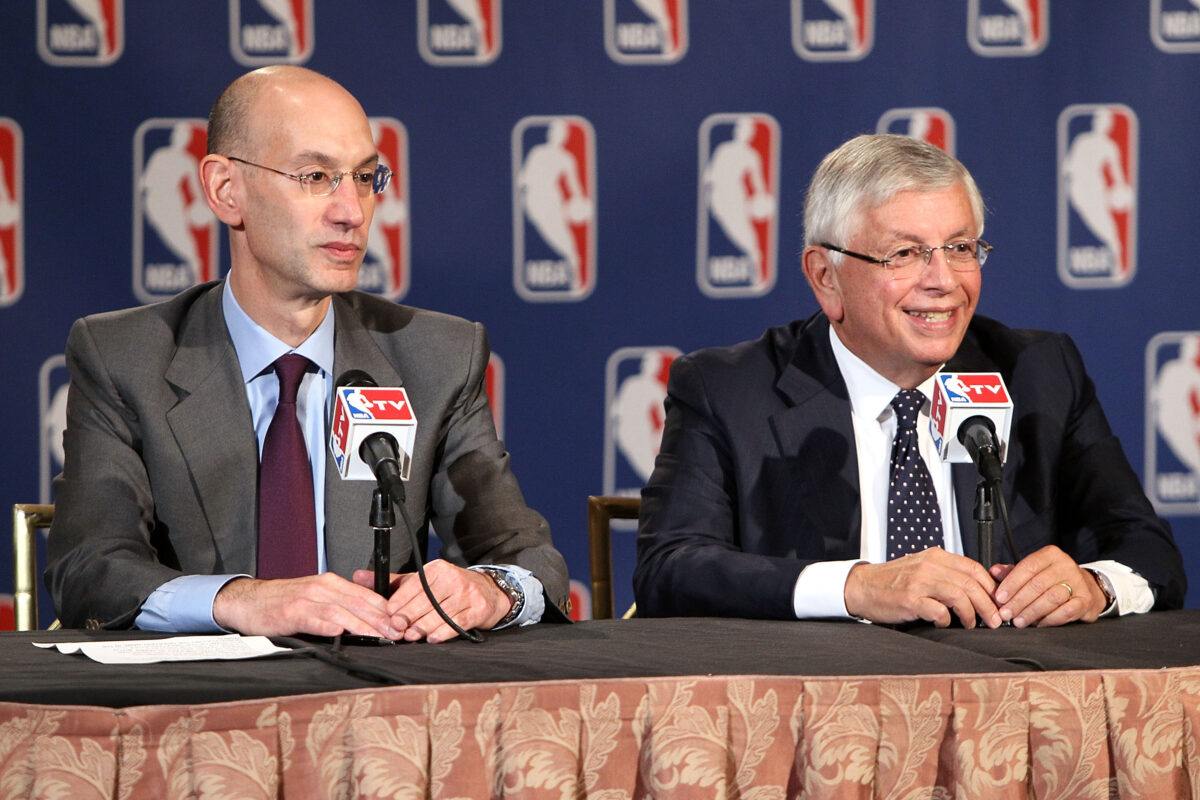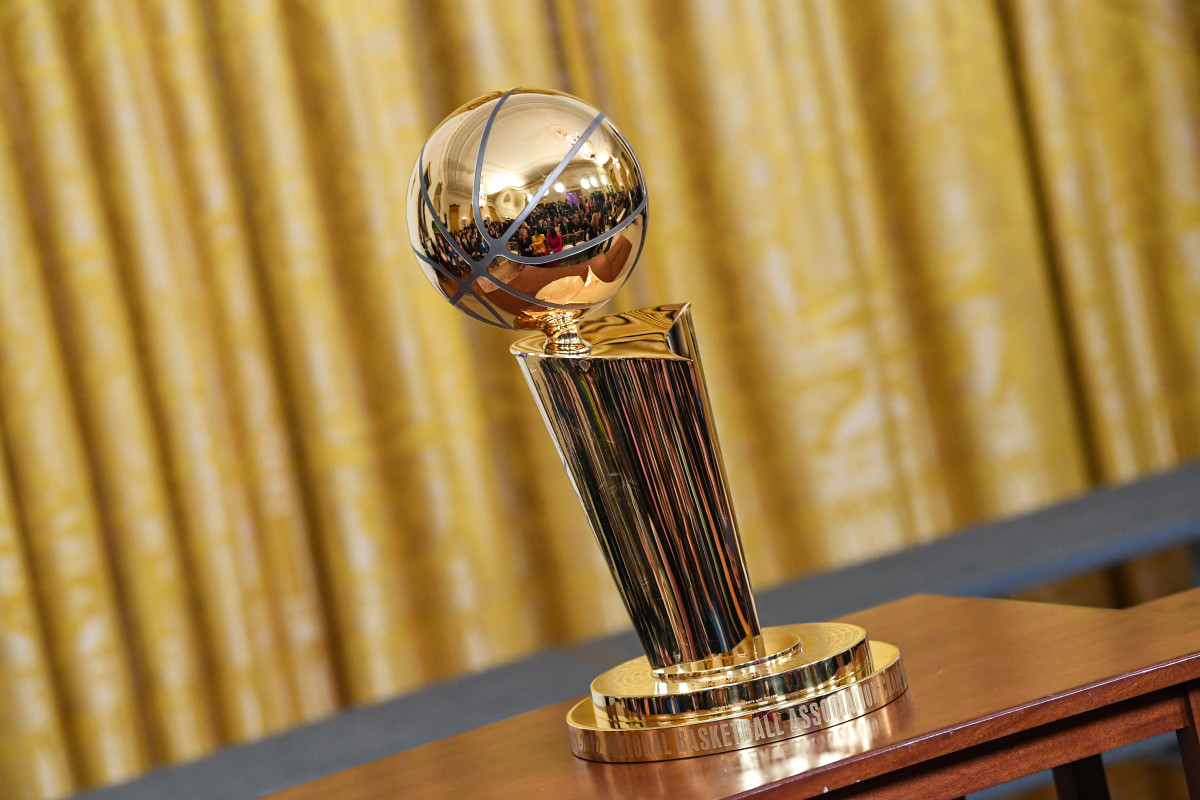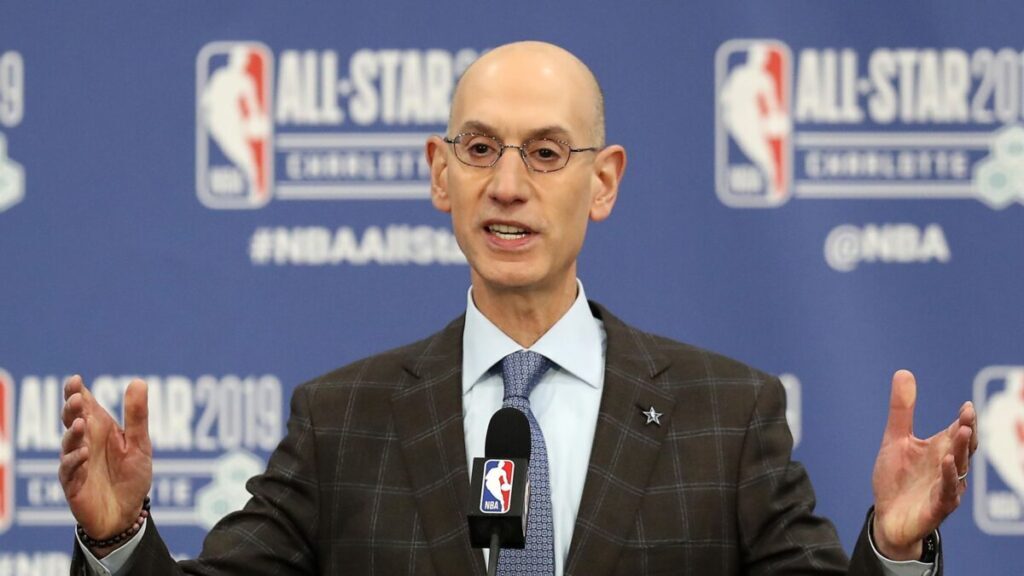Adam Silver, a pivotal sports executive, has steered the NBA since 2014, marking a decade of leadership in the 2023/2024 season. His tenure as NBA Commissioner has catapulted the league to unparalleled heights, establishing it as a global sports phenomenon. This article delves deep into Silver’s journey, showcasing his achievements and future ambitions for the NBA.
We trace Silver’s roots, highlighting his academic journey and early career. His ascent from Deputy Commissioner and Chief Operating Officer to the helm of the NBA is a testament to his strategic acumen. As Commissioner, Silver’s impact on the league is profound, shaping the NBA into a dynamic, forward-thinking organization. This exploration offers insights into the man driving the NBA’s continued evolution and success.

The NBA’s Commissioners
The Commissioner of the NBA holds the reins of the National Basketball Association, ensuring seamless operations, nurturing player relations, and championing sportsmanship.
Adam Silver took on this pivotal role in 2014, steering the league with a steady hand.
Preceding him was David Stern, who led from 1984 to 2014, shaping the NBA’s trajectory. This role is crucial in maintaining the NBA’s status as a premier professional sports league.
Maurice Podoloff
Maurice Podoloff, the inaugural Commissioner of the NBA, was a key figure in the league’s early years. Starting in 1946, he led the NBA, then known as the Basketball Association of America (BAA), until 1963.
Despite his background as a lawyer rather than a sports executive, Podoloff’s leadership was vital. He orchestrated the merger of the BAA and the National Basketball League (NBL) to form the modern NBA in 1949.
His tenure saw the NBA’s expansion and the introduction of the collegiate draft and the 24-second shot clock, revolutionizing the game.
Podoloff’s efforts also led to the NBA’s first television contract, significantly boosting its popularity and NBA entertainment. The league honors his contributions with the Maurice Podoloff Trophy, awarded annually to the NBA’s Most Valuable Player.
J. Walter Kennedy
J. Walter Kennedy, serving as NBA Commissioner from 1963 to 1975, significantly impacted the league. His leadership saw the NBA expand from 9 to 18 teams and secure a major television contract, boosting its profile in the global sports business.
Kennedy’s tenure, marked by the historic “Phantom Buzzer Game” protest, was pivotal in the NBA’s financial and popular growth. His legacy lives on in the NBA’s annual citizenship award, named in his honor, reflecting his dedication to the sport and community.
Larry O’Brien
Larry O’Brien, serving as NBA Commissioner from 1975 to 1984, was instrumental in the ABA-NBA merger, a pivotal moment for the league.
His negotiations with CBS significantly boosted the NBA’s television presence in the world of professional sports leagues.
The league’s growth and financial success during his tenure led to the NBA Championship Trophy being renamed in his honor. O’Brien’s leadership was crucial in shaping the NBA’s modern era.

David Stern
David Stern, serving as NBA Commissioner from 1984 to 2014, was the longest in this role. Before leading the NBA, he worked at Proskauer Rose law firm.
Under Stern, the NBA soared in popularity and financial strength. He introduced the Salary Cap, ensuring the league’s stability. His efforts in securing rich TV contracts and supporting seven new teams were key to the NBA’s growth.
Stern’s impact on the global sports business and NBA entertainment was immense.
He brought NBA games to over 30 countries, a huge step in making basketball a global sport. His leadership left a lasting mark on the NBA’s international presence.
NBA Commissioner Adam Silver
Adam Silver, currently serving as the NBA Commissioner, has a distinguished academic background with an economics degree from Duke University and a law degree from the Chicago Law School.
His career in the NBA began in the legal department, leading to his eventual roles as Deputy Commissioner and NBA Chief Operating Officer.

In 2014, Silver was unanimously chosen by the NBA’s Board of Governors as their fifth Commissioner.
Since taking the helm, he has introduced the play-in tournament, a dynamic approach to determining each conference’s eighth seed, adding excitement to the season’s NBA finals, and also In-Season Tournament, and better integration with the NBA G League.
Moreover, his commitment to global sports expansion can be seen in Commissioner Adam Silver finalizing deals for the NBA to now host games worldwide. His efforts have significantly contributed to the NBA’s international presence, reflecting his vision for basketball’s global outreach.
Roles and Responsibilities of the NBA Commissioner
As NBA Commissioner, Adam Silver has several vital roles:
Player Relations: He manages NBA player interactions, addressing concerns and ensuring a positive environment.
Team Operations: Silver oversees team finances and marketing for their success.
Dispute Resolution: He mediates conflicts between teams and players.
Broadcast Rights: Silver negotiates TV deals for game coverage.
Team Relocations: He’s involved in decisions about team moves.
League Expansions: Silver evaluates potential new teams and markets, ensuring the league’s growth.
Frequently Asked Questions:
Who is the current NBA Commissioner?
Adam Silver, appointed in 2014 after serving as Deputy Commissioner and COO for eight years, holds the role. His extensive experience includes launching the Basketball Africa League and expanding the NBA globally.
Who selects the NBA Commissioner?
The NBA Board of Governors, comprising all 30 team owners, makes this decision through a majority vote.
What has Adam Silver accomplished for the NBA?
Under Silver’s leadership, the NBA expanded internationally, improved player safety with rule changes, and enhanced the overall game experience for fans.
Is Adam Silver married?
Yes, he is. Silver married Maggie Grise in 2015, and they have two daughters.
Who owns the NBA?
The NBA is collectively owned by its 30 teams, making it a unique league owned by its member teams. This structure grants teams significant influence over the league’s direction and decisions.





